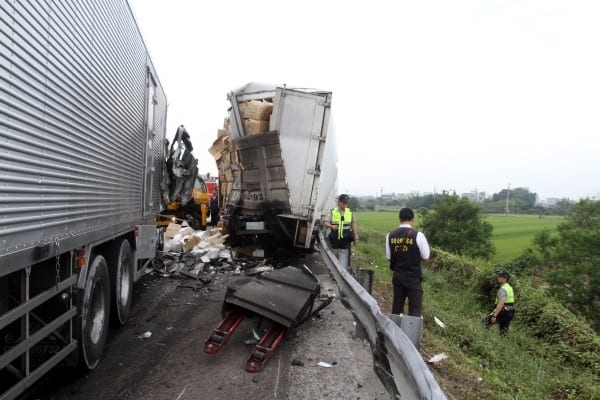
After gradually declining for many years, the number of fatal truck crashes in the United States has increased 42 percent since the early 2000s. Semi-trucks weight more than 80,000 pounds when they are fully loaded. Additionally, these massive vehicles carry hundreds of gallons of diesel fuel. As a result, these collisions often cause catastrophic injuries.
Typically, commercial driver insurance policies only cover a fraction of these costs. To recover fair compensation, victims can file separate legal claims against the individual tortfeasors (negligent drivers). But many people are effectively judgment-proof. So, large truck crash victims usually need to find an alternative source of compensation.
To bring about this result, Brainerd, MN injury lawyers often rely on third-party liability theories, as outlined below. Generally, these rules are very victim-friendly in Minnesota. Therefore, Crow Wing County victims usually do not need to pursue separate claims to obtain compensation for economic losses, such as medical bills, and noneconomic losses, such as pain and suffering. Additional punitive damages may be available as well, in some extreme cases.
What Causes Large Truck Crashes?
The news media usually classifies these collisions as “accidents.” The a-word implies that the incident was unavoidable and inevitable. But that’s normally not the case. In fact, human error causes over 90 percent of the large truck crashes in Minnesota. That error usually involves one of the following three kinds of negligence:
- Environmental: Longtime Minnesota residents are used to driving in bad weather. But out-of-state truck drivers do not have this experience. All drivers should slow down and use extra caution when the weather is bad, especially if they are operating large vehicles. But many drivers ignore adverse environmental conditions.
- Operational: Excessive speed and illegal turns are two of the most common kinds of operational negligence. Distracted driving, an umbrella terms which applies in many different situations, probably falls into this category as well. Mechanical negligence is a serious problem as well. On a large vehicle, a minor mechanical flaw could cause a catastrophic wreck.
- Behavioral: Many truck drivers should not be behind the wheel at all. Truck driver fatigue is a good illustration. Most shipping companies pay drivers by the load, so they try to stay on the road as long as possible. Additionally, many truck drivers are behind the wheel late at night and early in the morning. People are naturally drowsy at these times, no matter how well-rested they are.
Truck driver negligence often leads to head and spinal injuries. These injuries are incredibly costly, and many health insurance companies refuse to cover these expenses. Luckily, a Brainerd, MN injury lawyer can connect victims with doctors, even if they have no money or insurance.
Prompt treatment is important for medical reasons. Doctors often misdiagnose collision-related head injuries. Delayed diagnosis and treatment typically makes these injuries much worse. Immediate help is also important for legal reasons. If the victim does not go to the doctor straightaway, the insurance company may later claim that the victim’s injuries must not have been very bad, so it refuses to pay fair compensation.
Brainerd, MN Injury Lawyers and Your Claim for Damages
All three types of negligence mentioned above usually involve a lack of ordinary care. If the tortfeasor fails to fulfil that duty, and that failure substantially caused the crash, the tortfeasor may be liable for damages.
A lack of ordinary care is easier for Brainerd, MN injury lawyers to establish in court than it is in some other states. Under Minnesota law, truck drivers are common carriers. These individuals have a higher duty of care than non-commercial drivers.
This higher duty is especially relevant in mechanical and environmental negligence claims. If a Toyota’s breaks are not working properly, that’s usually not a big deal. But if a huge semi-truck’s brakes are not working properly, the result could be disastrous.
The common carrier designation also applies to other commercial operators, such as bus drivers, taxi drivers, and Uber drivers.
Third Party Liability
Most large truck crashes involve a legal doctrine called respondeat superior (“let the master answer”). Under this rule, employers are legally responsible for the negligent acts of their employees if:
- Employer-Employee Relationship: If the employer controlled the tortfeasor in any meaningful way, such as hours worked, that individual as an employee in this context. So, this label could apply to regular workers, independent contractors, owner-operators, and unpaid volunteers.
- Scope of Employment: Somewhat similarly, any act that benefits the employer in any way is within the scope of employment. Driving an empty truck which bears the company’s logo is within the scope of employment, because the free advertising benefits the employer.
- Foreseeability: Generally, a vehicle collision is always a foreseeable result, though not necessarily an inevitable result, of operating a motor vehicle.
Other employer liability theories, which often apply in assault and other intentional tort claims, include negligent hiring and negligent supervision.
Contact a Dedicated Attorney
The tortfeasor may not be the only person who is responsible for damages. For a free consultation with an experienced Brainerd, MN injury lawyer, contact Carlson & Jones, P.A. You have a limited amount of time to act.

